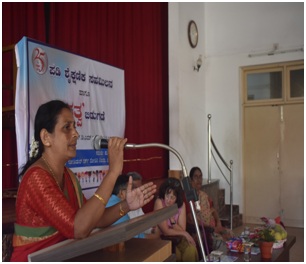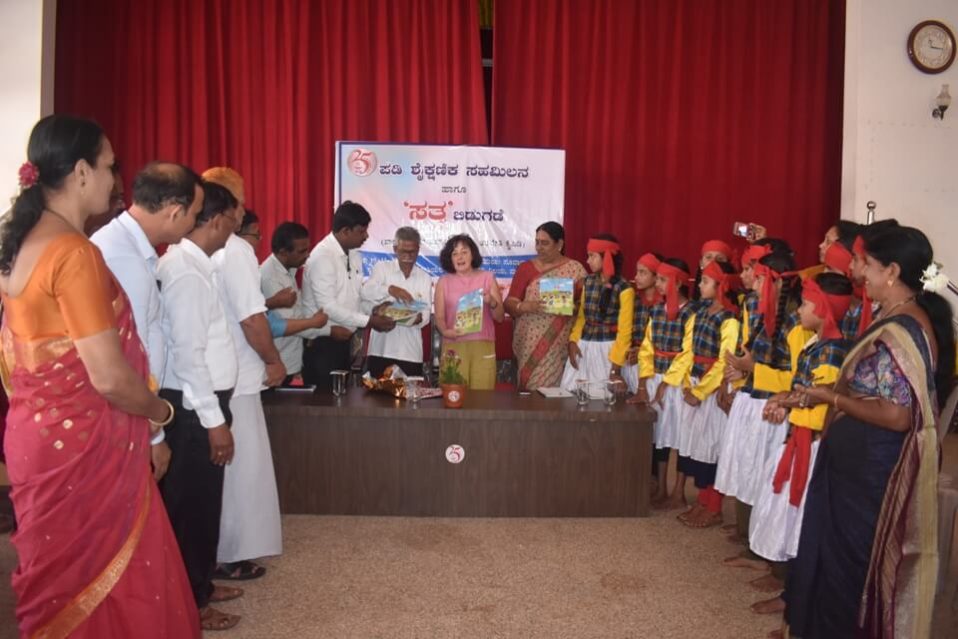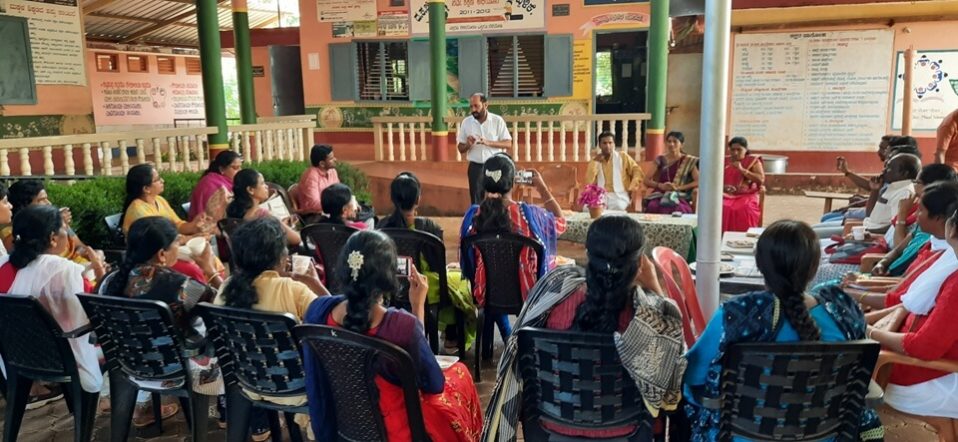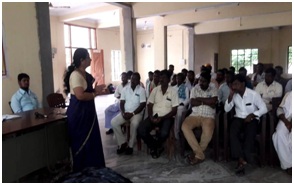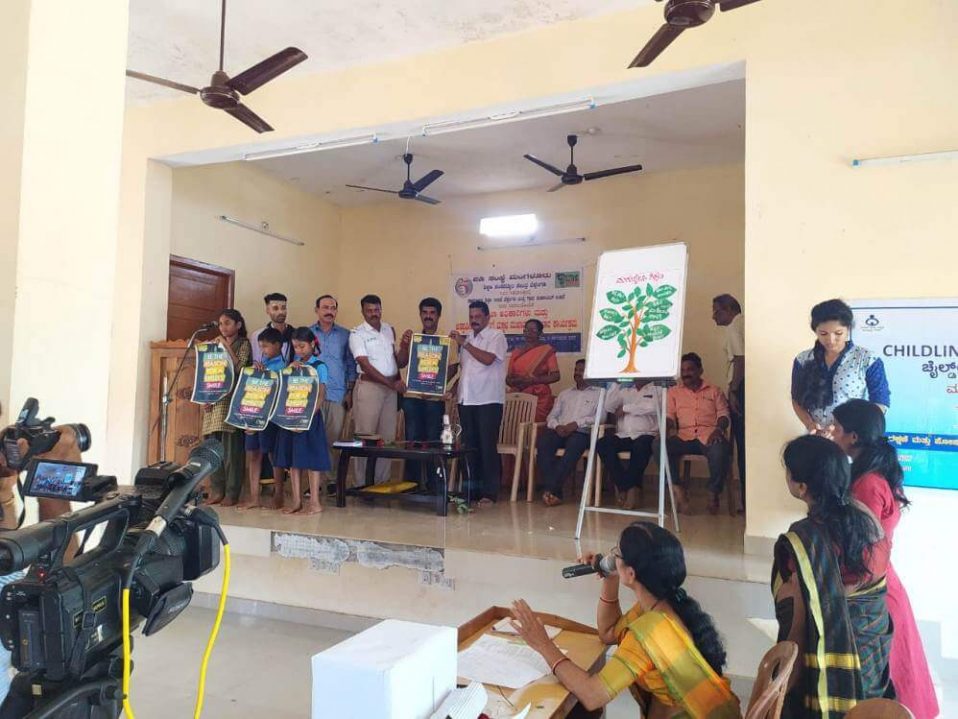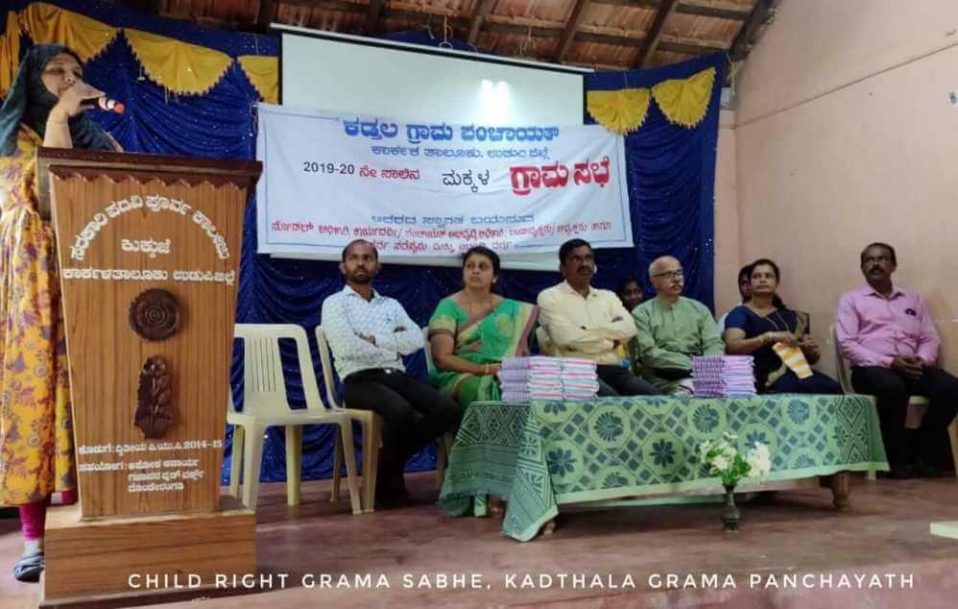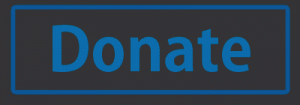THROUGH THE INTERFACE PROGRAMMES PADI, MANGALORE STRIVES TO UPHOLD THE RIGHT TO PARTICIPATE
The United Nations Convention on the Rights of the Child (UNCRC) is a legally-binding international agreement setting out the civil, political, economic, social and cultural rights of every child, regardless of their race, caste, colour, religion or abilities. The UNCRC consists of 54 articles that set out children’s rights and how governments should work together to make them available to all children. Under the terms of the convention, governments are required to meet children’s basic needs and help them reach their full potential. Central to this is the acknowledgement that every child has basic fundamental rights. These include the right to Survival; Protection; Development; Participation.
Right to Survival includes Right to life; the highest attainable standard of health; Nutrition; Adequate standard of living; A name and a nationality.
Right to Development includes Right to Education; Support for early childhood care and development; Social security; Right to leisure, recreation and cultural activities.
Right to Protection includes freedom from all forms of Exploitation; Abuse; Inhuman or degrading treatment; Neglect; Special protection in special circumstances such as situations of emergency and armed conflicts, in case of disability etc.
Right to Participation includes Respect for the views of the child; Freedom of expression; Access to appropriate information; Freedom of thought, conscience and religion.
All countries that sign up to the UNCRC are bound by international law to ensure it is implemented on November 20, 1989. This is monitored by the Committee on the Rights of the Child. India too signed and ratified the UNCRC, on 11th December 1992 agreed to Protect Children’s Rights.
India enacts a number of progressive legislation and formulated policies to address the imperative child rights issues. Some of the key legislations that have been enacted to protect the rights of children
- The Commissions for Protection of Child Rights (CPCR) Act, 2005
- Child Marriage Prohibition Act of 2006
- The Right of Children to Free and Compulsory Education (RTE) Act, 2009
- Protection of Children from Sexual Offences Act, 2012
- National Food Security Act, 2013 for provisioning of food grains
- Juvenile Justice Act (Amendment) 2015
- Child Labour Prohibition & Adolescent Act (Amendment) 2015
And some Policies & Guidelines: –
- Child Right Grama Sabha Order (Karnataka ) 2006
- Circulars on Child Rights Club 2007/2009/2011.
- NCPCR guidelines on Corporal Punishment in Schools 2015
- National Children Policy in 2013
- Karnataka Child Protection guidelines of -2016
- National Education Policy 2019
There is a need to ensure the voice of children in decision-making to promote active citizenship among them and also to improve the system’s accountability. Children should be made aware of the processes through which they can participate in the decision-making processes. They also have the right to organize themselves into groups that can represent them at various forums.
Along with the realization of Nations rules and acts to keep respect children, since 2006 Karnataka Government to validates the children participation through implementing Child Right Grama Sabha. This is a great opportunity for children in participating Gramasabha with all respective Government Officials where they can raise their issues. Initially, this Child Right Grama Sabha was taken place for namesake, it was observed most of the taluk level Government officials in the Grama Sabha were absent, but on behalf of them, they send their subordinates who are not decision-makers. This caused the raised issues of children were on records and not been given respect to their voices.
Children can raise issues affecting not only them but also to the Society to strive for a better world. So the INTERFACE programme of PADI really provided a platform for CHILDREN & to Government OFFICIALS, People’s Representatives and Development thinkers too.
2018-19 INTERFACES programme the Children Representatives of Child Rights Clubs, School Parliaments, and Meena Clubs, of Project’s selected schools of UDUPI & Dakshina Kannada Districts. The children succeeded in raising voices for their concern with thousands of doubts and many issues.
In this Interface, Government Department Personnel and the representatives of Child Protection Authorities, viz., Taluk Panchayath Executive Officers, Panchayath raj Department, Block Education Officer, Education Department, District Child Protection Units, Police Department, Health Department, Labour Department, Child Welfare Committee, Social Welfare Department, CHILDLINE, Karnataka State Road Transport Corporation, Public Welfare Department, Women & Children Development Department, Forest Department, Revenue Department, MESCOM/Karnataka Electricity Board were presented.
We would like to share some of the Impacts of
Sullya Jattipalla School Issues set righted within 2 days, One of the Interface Programme of PADI Project Area at Sullia Taluk, held at Taluk Panchayath Meeting Hall on 30th October 2019. In the presence of Taluku Panchayath Executive Officer, Block Education Officer, Women & Child Development Officer, District Child Protection Officer, Bar Association President, KSRTC Depot Manager, Police Department, Forest Department Officer, CHILD Helpline, Officer of Health Department, Social Welfare Department Officer, Sullia Children Interface Programme took place. Out of 33 questions asked by children to all departments, 2 issues were set right within a week time. Interestingly Bar council President is one of the members of Town Panchayath, who put forward the issue of children to the town Panchayath President,
1. Drug menace is rampart among children
2. Due to water leakage in the tank of Nagara Panchayath that flows through the school ground continuously since 8 years, the children are not able to use the playground which is an important part of the school in developing and practising sports and physical activities. Though these issues were bought to the notice by the teachers to Nagara Panchayath, this issue is not taken seriously.
Children requested the concerned authorities to set right this issue and pleaded to create an environment-friendly area, supportive to play and walk without any hindrance and inconvenience.
Soon, within 2 days, the President along with Deputy Commissioner visited this school, inspected the campus, documented the issue, and on the same day DC ordered and replaced the water tank and arranged separate water tank for the school.
They also visited all the small shops and vendors nearby the school and warned not to sell drugs and forbidden items to the children.
In some of the Villages of Sullia, the buses not stop for children in their particular stop though they showed their Bus passes, ignoring the children, in response the issue was noted by the KSRTC Incharge and the keen attention were taken and now the Bus conductors stop and behave with children with comportment.
Children insisted Police Department personnel attend the Child Protection Committees of Schools, and they should know the ongoing, problems of children and time to time should give the awareness from the department related to child protection and their responsibilities, to have the trust of Child-Friendly Police. It was agreed by the department and insisted teachers, to send the Meeting notice in time.
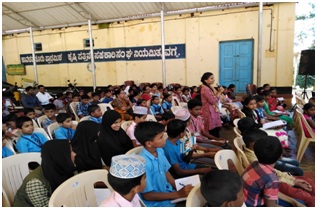
In one of the schools, they pressurized Panchayath, to provide Games/Sports materials to the schools, since they do not have sufficient and important ones. Taluk Panchayath Executive Officer agreed to provide the same at the earliest.
Such many issues which were already asked by the School Teachers, SDMCs were not fulfilled, but the Interface Programme, really a successful one, to get the benefits which Government provides to the schools, students in time, with quality and the involvement of the entire department to create a child-Friendly atmosphere in the school campus.
Except that the following questions are general in all taluks,
1. Irregular electricity supply to the village that it affected studies of children, especially in classrooms; they are not able to listen to Radio – Nalikali Programme.
2. Lack of adequate and sufficient no of buses is an unsolved problem in the rural area-non provision of KSRTC Buses to rural Areas
3. Horrible and danger are general experiences to the children in all the season due to poor Road Facility.
4. Scarcity of clean water for drinking, toilet and midday meal preparation, hand wash
5. Inadequate teachers affected the low quality of education for children.
6. The dilapidated condition of the School Building is caused by unsafe and no protection for children for their life.
7. Lack of School infrastructure affected the child-friendly and joyful atmosphere
8. Absence of sports materials and related play courts as well physical teachers are not available for children to develop their skills, talents and hobbies.
9. Computers, Science lab & Library, to develop their skills
10. Provision of School Uniforms and Books in out of the standard time.
11. Poor quality of bicycles
Community-owned Education Resource Centres and its Federations of 2 districts will take follow up of the issues, resolutions, and advocate the issues to the Taluk Panchayaths to discuss in the Karnataka Development Programme Agenda, wherein all the elected representatives of Zilla and taluk panchayath, taluk level officials will be there in the meetings.
PADI will monitor the Federation and ERCs effort on this and give guidance whenever necessary and keep the keen track to give respect to children’s voices.
For more photos click Interface programmes PADI Gallery
